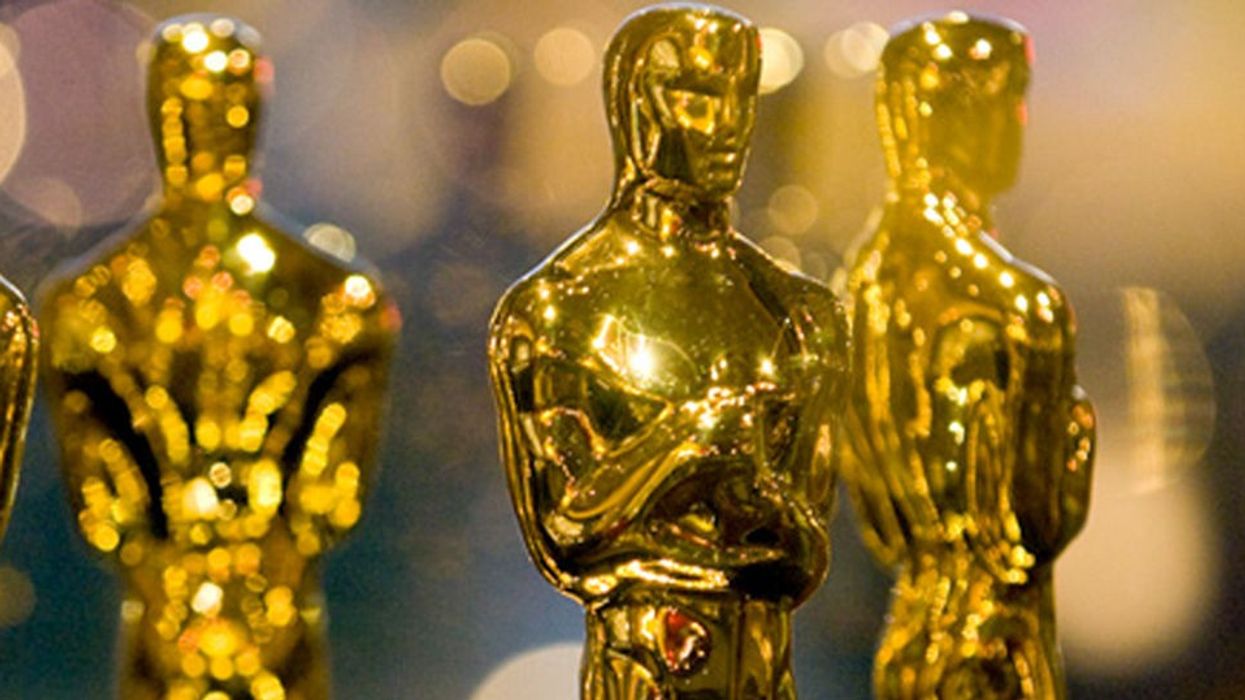Which Cameras Were Used on the Oscar-Nominated Films of 2016?
It's not all about the camera -- we know. However, it's pretty interesting, as well as important to learn which ones were used on the Oscar-nominated films by both Hollywood and indie filmmakers.

Yes -- interesting and important, but not all that surprising. Just like in 2015, as well in 2014, the Oscar-nominated films used primarily digital cameras, namely the ARRI Alexa. However, a fairly significant amount of films utilized film cameras to produce that classic cinematic aesthetic, including The Big Short, Bridge of Spies, and of course, Quentin Tarantino's The Hateful Eight.
There were also a couple of surprises. For instance, RED has been almost entirely absent from the Oscars for the last two years, but this year three different films used their cameras, with one film, Room, using one exclusively (though The Martian, for all intents and purposes, did also, but they used a GoPro as well). And hey, Blackmagic even made an appearance in Mad Max: Fury Road, which is pretty exciting for indie filmmakers who have opted for the inexpensive, but powerful, Cinema Camera.
Okay, without further ado, here are the nominees (and the cameras and lenses they used):
The Big Short
Nominated for Best Picture (Brad Pitt, Dede Gardner and Jeremy Kleiner) and Best Director (Adam McKay).
Cameras: Arricam LT, Canon EOS C500
Lenses: Angenieux Optimo Lenses, Panavision Primo Lenses
Bridge of Spies
Nominated for Best Picture (Steven Spielberg, Marc Platt and Kristie Macosko Krieger).
Cameras: Arricam LT, Arricam ST, Arriflex 235, Arriflex 435 Advanced
Lenses: Hawk V-Lite, V-Lite Vintage '74 and V-Plus Lenses
Brooklyn
Nominated for Best Picture (Finola Dwyer and Amanda Posey).
Cameras: Arri Alexa XT
Lenses: Zeiss Master Prime, Super Speed and Leica Summilux-C lenses
Mad Max: Fury Road
Nominated for Best Picture (Doug Mitchell and George Miller), Best Director (George Miller), and Best Cinematography (John Seale).
Cameras: Arri Alexa M, Arri Alexa Plus, Blackmagic Cinema Camera (some shots), Canon EOS 5D Mark II (some shots), Olympus P5 (some shots)
Lenses: Panavision Primo, Primo Zoom, Ultra Speed and Angenieux Optimo Lenses
The Martian
Nominated for Best Picture (Simon Kinberg, Ridley Scott, Michael Schaefer and Mark Huffam).
Cameras: GoPro HERO4, Red Epic Dragon, Red Scarlet Dragon
Lenses: Fujinon Premier Cabrio, Angenieux Optimo and Optimo DP Lenses
The Revenant
Nominated for Best Picture (Arnon Milchan, Steve Golin, Alejandro G. Iñárritu, Mary Parent and Keith Redmon), Best Director (Alejandro González Iñárritu), and Best Cinematography (Emmanuel Lubezki).
Cameras: Arri Alexa 65, Arri Alexa XT M, Arri Alexa XT, Red Epic Dragon (some scenes)
Lenses: Hasselblad Prime 65 Lenses, Panavision Primo, C-Series, Leica Summilux-C and Zeiss Master Prime Lenses
Room
Nominated for Best Picture (Ed Guiney) and Best Director (Lenny Abrahamson),
Cameras: Red Epic Dragon
Lenses: Panavision Primo and Ultra Speed MKII Lenses
Spotlight
Nominated for Best Picture (Michael Sugar, Steve Golin, Nicole Rocklin and Blye Pagon Faust) and Best Director (Tom McCarthy).
Cameras: Arri Alexa XT, Panavision Lightweight
Lenses: PCZ, Super Speed Z-Series MKII, Ultra Speed Z-Series MKII and Angenieux Optimo Lenses
Carol
Nominated for Best Cinematography (Ed Lachman).
Cameras: Arriflex 416
Lenses: Cooke Speed Panchro, Varopanchro, Zeiss Master Zoom and Angenieux HR Lenses
Cooke S4/i Lenses
The Hateful Eight
Nominated for Best Cinematography (Robert Richardson).
Cameras: Panavision 65 HR Camera, Panavision Panaflex System 65 Studio
Lenses: Panavision APO Panatar Lenses
Sicario
Nominated for Cinematography (Roger Deakins).
Cameras: Arri Alexa XT M, Arri Alexa XT Plus, Arri Alexa XT Studio
Lenses: Zeiss Master Prime Lenses
If you want to learn more about the tech side of each of the listed nominees, including compression formats, aspect ratios, and sound mixes, just click on the titles to be taken to each of their respective technical specifications pages on IMDb.













